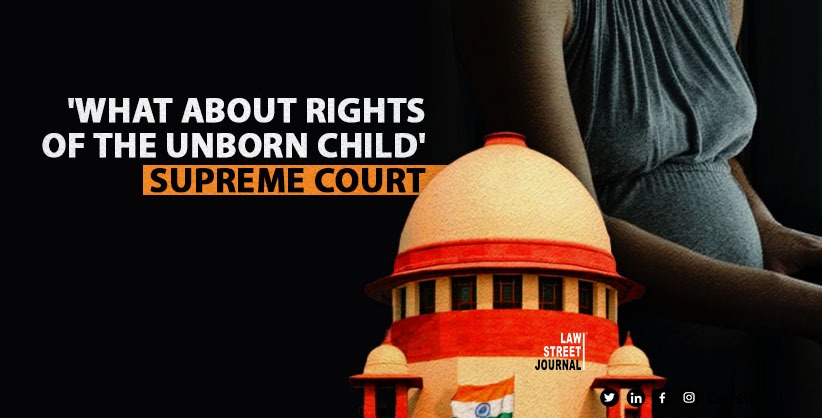NEW DELHI: The Supreme Court on Thursday emphasised on the need for balancing the rights of woman and her unborn child, saying it can't direct for terminating 26-week pregnancy as doctors faced serious ethical dilemma as it would amount to foeticide.
A bench led by Chief Justice of India D Y Chandrachud asked the woman, a mother of two child to reconsider her decision to terminate the pregnancy.
A bench of Chief Justice of India D Y Chandrachud and Justices J B Pardiwala and Manoj Misra suggested her to consider carrying the pregnancy for a few more weeks so that the child isn't born with any deformities and the state is ready to take care of the child and the AIIMS would provide all help.
"Autonomy of woman must trump, but what about the unborn child, nobody is appearing for her. How do you balance out rights of the unborn child," the bench asked.
The bench also questioned the petitioner woman as to what she was doing till now.
Additional Solicitor General Aishwarya Bhati for the Centre submitted the right of choice in such matters is not absolute as it is medically unethical to terminate pregnancy.
As per the law, 24-week deadline can be breached only under exceptional circumstances, she said, adding, going against the medical opinion is very difficult, and chaotic for the country.
The bench said she has a right under Article 21 of the Constitution but equally, we must be conscious of the fact that whatever is done will affect the right of the unborn child.
"Who is appearing for the unborn child? You're for the mother..How do you balance the rights of the unborn child? It's a living viable foetus. Today its chances of survival are there, the bench asked her counsel.
The bench asked the petitioners counsel to advise his client to wait for a couple of weeks more.
"Is putting the child to death the only option? How can the child be put to death under judicial order," the bench asked.
The petitioner's counsel said his client does not want to stop the heartbeat of the child and also does not want to go through the full term of the pregnancy.
"Let's put this very bluntly in plain English -- either we kill the child or we ensure that the child is delivered in a state that the child is born as deformed for life. We cant kill the child. Of course in a given case, we will still exercise that overriding discretion. It is a different matter if it is about a child subjected to sexual abuse," the bench said.
"The judges task is all about balancing, balancing rights, balancing duties, balancing what is in social good. I find it very difficult to come to terms with this order actually, the CJI said.
The matter was put before the bench as two women judges differed on issue of allowing her to terminate her pregnancy on Wednesday.
The bench also said today if the child is delivered, there is possibility of it being born deformed, nobody will adopt the child.
"In our country people do not like to adopt children with special needs, that is a very hard fact. Occasionally there are exceptions, but generally people dont in our country. But the fact of the matter is that the child will have nobody, no source of succour, the bench said.
Petitioners counsel said the woman faced depression and other issues, she is unable to take care of her two children, who are being looked after by her mother-in-law. The counsel said after the delivery of the third child, two lives will be spoiled.
The Chief Justice asked the petitioners counsel and Additional Solicitor General Aishwarya Bhati, representing the Centre, to talk to the petitioner and put her plea for hearing on Thursday.
"We will not do something which is knee jerk or pass any order, just because of our prima facie observation," the bench said.
During the hearing, the counsel said had this been a case of a minor girl or an unmarried girl, this question of foeticide would not have arisen here.
It depends, the bench said. The counsel said his client is married.
The bench asked, Does not that make a critical difference? The counsel cited a high court judgment ordering termination of 29-weeks pregnancy.
I know, but we are the Supreme Court, the bench said.
On Wednesday, two women judges of the Supreme Court disagreed on whether to allow or not the termination of a 26-week pregnancy of a married woman, as the doctors had a second thought about it.














